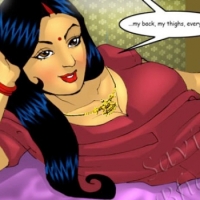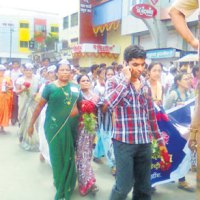In the 2G case, you can’t say that all the private firms bribed their way in. It is the responsibility of the government to ensure the trust of investors, that their investments are safe. But when you engage in misappropriation, then it reflects on other clean deals as well. This has very bad implications on investments coming into the country. Firms from Norway and other countries have started to show their apprehensions already.
How does one maintain checks and balances?
Everyone has to work on his own turf. There should be no intrusion. Only in cases where there is inaction, if the executive is not enforcing law, or not fulfilling its duty, then the judiciary can step in and direct it to enforce the law.
The way they have done in the black money case, by laying down a policy…
Black money and all, you can’t lay down a policy. You can direct them to change the policy. But even that is going too far, stretching it too far. Judiciary is not supposed to run the government. They could have checked whether the government is acting upon it, they could have asked them to submit progress reports to the court. But what manner it is to be done, the policy matters, are to be decided by the government.
Again, in the 2G case, the court said only auction should be done…
It is all right, when there is so much corruption, then auction seems to be the only viable option. In the auction system, it is to be seen whether it (auction) is for everything, and then, how will the poor cope up with it in front of the moneybags…
Don’t you think that instead of directing for an auction, in this case where a national resource is involved, the court could have left the decision to the government?
Yes, I too feel it should have been a little flexible. Suppose you want to part with government resources to develop weaker sections of the people, the minorities etc, there you can’t impose this system, this won’t work. Suppose you have to give houses to the poor, you can’t auction them.
In the 2G case, one of the defences was that this has made mobile telephony cheaper for the masses…
There, you see, the corruption is so apparent. Some hundreds of crores have been transferred in the accounts. Had all this not happened, then I think the court would have been lenient. The court, perhaps, took all that into consideration. And it is not final, it can be reviewed sometime later.
You think it should be reviewed?
I wouldn’t say it should be. A case can be reviewed on the basis of the circumstances prevailing in that particular period of time.
There is a larger belief that the powerful get away easily even in the judicial system. However, we saw in recent cases that many powerful people were kept in pre-trial detention for a long period. Do you agree that the courts got influenced by public pressure?
(Laughs) You must never say that. I think they act on the content of law rather than public pressure. I never got swayed by public pressure. You have to give justice based on the law.
Do you think they should have got bail?
Yes, because, normally, in economic offences people get bail. But, as I told you, the reflection of society can be seen on the courts as well. There was a wave against corruption, this scam, that scam, and then, as you said, the feeling that the powerful get away easily. Sometimes the powerful don’t get bail, like in this case. All these contradictions are there. These are all opinions of society. The best way is to act according to the law.
Do you feel that many of the judgements are politically coloured?
I wouldn’t call it political. They are perhaps coloured by public opinion.
What about the Ayodhya judgement?
(Laughs) The original suit was a civil suit and they partitioned it. Partition suit is different. Where did the question of partition arise? But, then, as I said, they must have, perhaps, acted as per public opinion and gave something to all the aggrieved parties. Legally, it is not correct.
Then there is this whole debate on frivolous PILs…
Yes, it is very rampant. During my tenure, I even constituted a committee to scrutinize and look into the merits of a PIL, and whether it is fit for consideration. We made some norms. The committee of judges was to decide if the PIL has merits for the benefit of society, for people of the country. Otherwise, it was rejected.
There are allegations that some lawyers act at the behest of corporates… We have seen allegations against people like Subramanian Swamy that they are targeting one political party. Does any such thing exist?
It may be. Because even I used to get a lot of complaints that there are certain lawyers who are sponsored by corporate houses. Some corporate house gets a licence, and then the other party takes recourse to PIL. And the lawyers make a lot of money. I got many such complaints. But I did not have the power to investigate lawyers on any such complaint. I could have investigated the judges, but I could not investigate the lawyers.
How does one deal with this menace?
Actually, it is because the Bar Council is weak. The disciplinary authority in this case is the Bar Council, and it doesn’t do anything. What does a judge know if the lawyer has taken money? And then, even the media highlights (some cases).
What about the long list of pending cases? Even in the riots cases, the victims still await justice. Be it the 1984 riots, the 1992 riots in Mumbai, or even theGujaratgenocide of 2002…
This is a blot on the judiciary. But what can the judiciary do? In our country, the ratio is 13.5 judges for one million people. In the developed countries, we have 130-135 judges for every one million people. A judge has to go into the facts, the evidence, the law, before deciding a case. I even put this question to the then president, APJ Abdul Kalam. I asked him, “People say that there has been so much modernization and computerization, but can the computer decide a case on the merits of it?” No! Each fact in each case differs from the others. So, if in our country the ratio is increased to even 40 judges per million people, then things can improve a lot.
We have no infrastructure. You go to a court, you have all kinds of people roaming freely. From booksellers to the ones selling tea. Some lawyer is sitting under a tree, some others in a tea shop. You have dogs and stray cows roaming freely. Have you ever gone to the Tees Hazari Court (in Delhi) and seen how hundreds of people pile up in the court room?
I did talk to many former prime ministers, including Mrs Indira Gandhi, in this regard. But they don’t have the finances to do it. Every year there are as many as 30 lakh cases of bouncing cheques. Every year 10 lakh people die in road accidents. Each accident makes two cases. One civil and one criminal. Then, you have dacoity, murder and rape cases. And you know the kind of police we have in this country.
What are your views on the reported corruption in sections of the lower judiciary, the high courts and the Supreme Court? We have seen affidavits filed in court which accused even some former Chief Justices ofIndiaof corruption.
There is corruption. But judges come from the same society which is corrupt. It is not institutionalized. Some judges may be engaging in corrupt practices. But it is very less in high courts, and I did not see any corruption in the Supreme Court. At least till the time I was there, I did not see any case. What happened after that, I do not know. They may be giving judgements according to their ideological beliefs, some judge may be pro-tenant, some may be pro-labour, but I don’t think they are involved in any monetary corruption. After I retired, there were all these cases of corruption on Justice YK Sabharwal, Justice RC Lahoti.
Coming to the subordinate courts, it is the Chief Justice of the state’s high court who has been delegated with powers to deal with corruption. If you see states like UP, it is so big, how much work can one Chief Justice do? The moment you enter a subordinate court, you have the clerk asking for money. I have information that even some judges are corrupt. To deal with it, the institution has to come up with some mechanism. A Chief Justice can’t deal with so much work.
We have judges who suffer from all kinds of weaknesses. You give them any power and they start feeling as if they are king. And it is the subordinate courts where a common man goes. How many people are able to come to the Supreme Court or high court? A mechanism to deal with corruption in the lower judiciary is very important.
Judicial Accountability Bill also doesn’t address it…
There is no provision for the lower judiciary since it is a state subject. If you bring it under this, then the states will say it is an attack on the federal structure.
Coming back to the Supreme Court, there are allegations on former Chief Justice KG Balakrishnan? Do you think he should have resigned?
I have not seen the facts, so I can’t say much. If there is any substance in the allegations, then he should have resigned.
Now we see that even petitions are loaded with the opinions of former judges. Don’t you feel that judges, once they retire, should not give such opinions?
What will the judge do then, once he retires? The retirement age is 65. What does he do after that? He can’t practise. How can you stop him from giving opinions? It is for the courts to tell the petitioner to not get such opinions. Yes, a judge should not take up any government assignment post-retirement.
Any concluding remarks…
There is need for a code of conduct for judges. There should be an element of restraint. They should exhibit honesty, impartiality and fairness, and should strive for the promotion of the weaker sections of society.
The way the situation is currently unfolding inPakistan, with the Supreme Court indicting the democratically elected prime minister – will it have any repercussions here?
No, I don’t think so. The courts here debarred Indira Gandhi from contesting elections. It is not bigger than that.





















